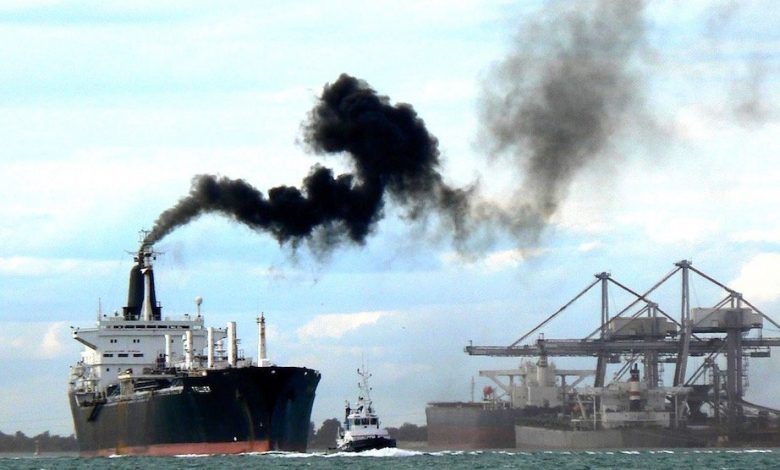World Shipping Council slams controversial IMO ‘corporate capture’ report

The World Shipping Council (WSC) has added its voice to the growing chorus of denials in the wake of Monday’s launch of a controversial report claiming top maritime organisations are holding back environmental talks at the International Maritime Organization (IMO).
The Washington DC-based liner lobbying group said a study issued by UK-based non-profit InfluenceMap “seriously misrepresents” the WSC’s approach to reducing carbon emissions from shipping.
InfluenceMap have claimed corporations have “unmatched” power to shape regulations at the United Nations’ shipping body. The InfluenceMap report – Corporate capture of the IMO – was timed for release to coincide with the start of the next round of IMO climate talks kicking off this week.
The 38-page report claimed big business and major shipping trade groups are “actively and collectively” obstructing global climate change policy at the IMO. Major flags of convenience as well as BIMCO, the WSC and the International Chamber of Shipping (ICS) are highlighted as barriers to getting more stringent, timely environmental rules in place.
“Contrary to InfluenceMap’s assertions, WSC has offered concrete proposals for both short and long-term carbon reductions,” the council maintained in an emailed statement.
In April of this year, WSC co-sponsored submittal MEPC 71/7/4, which proposed three core approaches to reducing CO2 emissions. First, the proposal suggested establishing an International Maritime Research Board with a mandate to direct and fund research and development of new and improved marine propulsion systems, electric generation plants, fuels, and ship design. Secondly, the April submission suggested periodically reviewing and modifying EEDI standards to promote the introduction of increasingly carbon-efficient tonnage in the maritime fleet. Finally, the submission suggested reducing air emissions from the existing fleet through investments in energy-enhancing technology.
WSC went on to say that the InfluenceMap paper “spreads misinformation” about both the Paris Agreement and the work of the IMO.
“The Paris Agreement is not, as stated by InfluenceMap, ‘legally binding’. To the contrary, it is purely aspirational, with no legal consequences for any nation’s failure to meet the objectives that each country sets for itself. In contrast, the IMO’s EEDI and fuel consumption reporting regimes are legally binding, and the IMO continues to consider additional legally binding requirements,” WSC noted, adding: “The issues to be addressed by the IMO are technically and politically complex. WSC urges all parties to maintain their focus on finding practical and effective solutions.”
The InfluenceMap report has been a major talking point at this week’s environmental discussions ongoing at the London headquarters of the IMO.
Esben Poulsson, the chairman of ICS, has also disputed the study, telling Splash earlier this week that his organisation has been leading, not hindering, talks to cut shipping emissions.
“The position we are taking at the IMO meeting this week is public and transparent,” Poulsson said, adding: “Far from seeking to derail progress it was the shipping industry which played a large part in persuading IMO member states to develop a strategy to address the further reduction of the sector’s emissions following the adoption of the Paris Agreement.”
InfluenceMap’s assertions that companies were piggybacking on government delegations at IMO were dismissed as well by Poulsson, who is also the president of the Singapore Shipping Association.
“It’s normal practice for national shipping industry experts to provide advice on technical issues to their government representatives by joining national governments delegations at IMO meetings, but these also commonly comprise representatives from national seafarers’ unions and environmental NGOs as well,” Poulsson pointed out.
Meanwhile, a spokesperson for BIMCO said: “BIMCO’s position on GHG reduction is fully transparent and clearly demonstrates that we welcome the roadmap for the reduction of GHG emissions by international shipping. Further, we have been active in setting out realistic proposals to drive international shipping towards a meaningful reduction in GHG emissions.”
Splash will be bringing further reports from this week’s IMO gathering.

This is quite correct. As has always been the case, the real champions for change are the ones that actually have to implement the outcomes from IMO and elsewhere – which is the industry. It is a great pity that such eNGOs choose to always take the confrontational approach to negotiations, rather than reaching out to and working with industry to effect change and meet our collective global responsibilities.
As Hamlet, the famous sailor, once said: “The lady (in this case, the grand old WSC) doth protest too much, methinks.” The truth hurts.